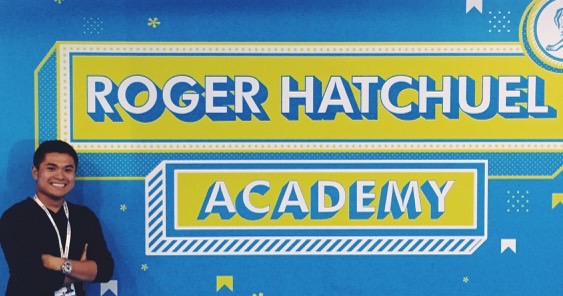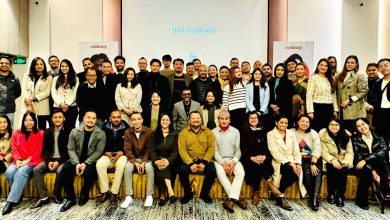Troy Bautista, a graduate student taking up Integrated Marketing Communications at the University of Asia and the Pacific (UA&P), is one of 35 students picked by the Young Lions Academies globally to undergo a 5-day course on creativity and advertising as part of the Cannes Lions Festival.
Representing UA&P’s Roger Hatchuel Academy, which is one of the Young Lions partner schools, Bautista shares what he learned from a talk by Rory Sutherland, the Vice Chairman of Ogilvy & Mather UK.
1) “When you have a problem, don’t always go to the same people in the same order.”
This was a hint at how generally; we have a particular set of people to approach for certain problems. I am actually one of those people, and this point really made me think, “What if I did mix up my approach for different problems?” Right off the bat Rory Sutherland’s point of view seemed to be different from everybody else.
2) ”Is a 20-30 minute improvement really worth the billions of pounds spent in infrastructure?”
Sutherland used an engineering example to prove his point. He believed that when you give an engineer a problem, you’d get an engineering problem. This is why when they’re asked to improve train services; they would instinctively make the train ride faster. He felt that if you really thought creatively, why not pay male and female supermodels serve and entertain the passengers? According to him, not only would you have more satisfied passengers, they would even demand for the train to be slowed down…all with less money! When he said this, I immediately told myself that never in my wildest dreams would I have thought of that brilliant solution. I was impressed.
3) The creative industry has much more important role in society.
To him, it is not only coming up with creative work that matters, but this work should utilize creative, real-life solutions that could benefit real people. In fact, he believes the creative industry should be called the creative unexpected solutions industry. It is the responsibility of the creative industry to come up with solutions that nobody else would think of. But he also admitted that these left field solutions often make people uncomfortable, which isn’t always a bad thing.
4) Avoid intrinsicism
Another concept he discussed was Intrinsicism, which is the philosophical belief that value is a non-relational characteristic of an object. Basically, it’s the belief that things have independent value. According to Sutherland, this is a dangerous concept to believe in because it discounts any frame of reference, which is key for marketers. In my opinion, he mentioned this to clearly point out that we should not limit ourselves in our thinking.
5) Follow your creative instincts
All these points (and much more!) on creative thinking really inspired me to be bolder with my ideas. It is so easy to be comfortable with our perception of our own thinking style, but I think it would also be helpful to stop for a moment and ask yourself if you’re pushing yourself enough to think of creative solutions.
I saw why Rory Sutherland felt that creatives’ instincts may actually often be better than logical thinkers. As an aspiring marketer, I think that it is vital not to settle with the “safe” mentality in thinking. If I would want to have a bigger impact on this industry, I would have to learn to be more convenient with unconventional thinking.
After Rory Sutherland’s talk, I felt extremely grateful to have been given the opportunity to be part of a select audience with one of advertising’s great unconventional thinkers. Although he may have not spoken in the big auditoriums during the Cannes Lions Festival, his thought-provoking ideas were more than enough to create a large enough impact on us, the future of advertising.










